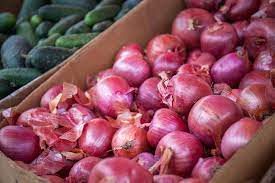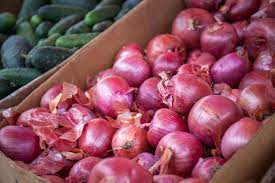CEBU CITY – Senator Imee Marcos who chairs the Senate Committee on Cooperatives urged the Department of Agriculture (DA) to increase the supply of onions that can be sold at Php170 per kilo in Kadiwa outlets and rolling stores before the New Year, instead of its plan to raise the suggested retail price (SRP) of onions to control runaway prices that reached P720 per kilo.
Marcos said, the DA should instead tap a neglected source of funding to expedite the harvest and direct purchase of locally grown onions for delivery to Metro Manila.
“Activate the P140-million fund from the 2021 budget which was realigned for the DA’s Food Mobilization Program this year. Raising the SRP for onions from P170 to P250 per kilo only invites more ridicule, with market prices now more than four times the present SRP,” Marcos pointed out.
Marcos initiated on Wednesday, December 28 the direct purchase of up to 300,000 kilos of onions from Nueva Ecija farmers’ cooperatives whose grants she had sponsored from the DA’s Kadiwa program. She also contacted Metro Manila mayors on the same day, to add Kadiwa outlets in wet markets and to map out the routes for Kadiwa rolling stores.
“The mayors of Las Piñas, Mandaluyong, Quezon City, Manila, Makati, and Valenzuela have confirmed their support. I am confident that more onions can be sold at Kadiwa prices on December 30 and 31,” Marcos said.
She added that onion harvests will continue
until February in Ilocos Norte, Ilocos Sur, La Union, Pangasinan, Batanes,
Nueva Ecija, Nueva Vizcaya, Tarlac, and Oriental Mindoro.
“A strategy for their purchase and delivery
should already be ironed out. Down the
road, a more efficient system of monitoring agricultural output must be put in
place, or we will always be at the mercy of hoarders and smugglers in cahoots
with corrupt officials at the DA,” the senator said. (Photos: DA-FB/Google Images)

































